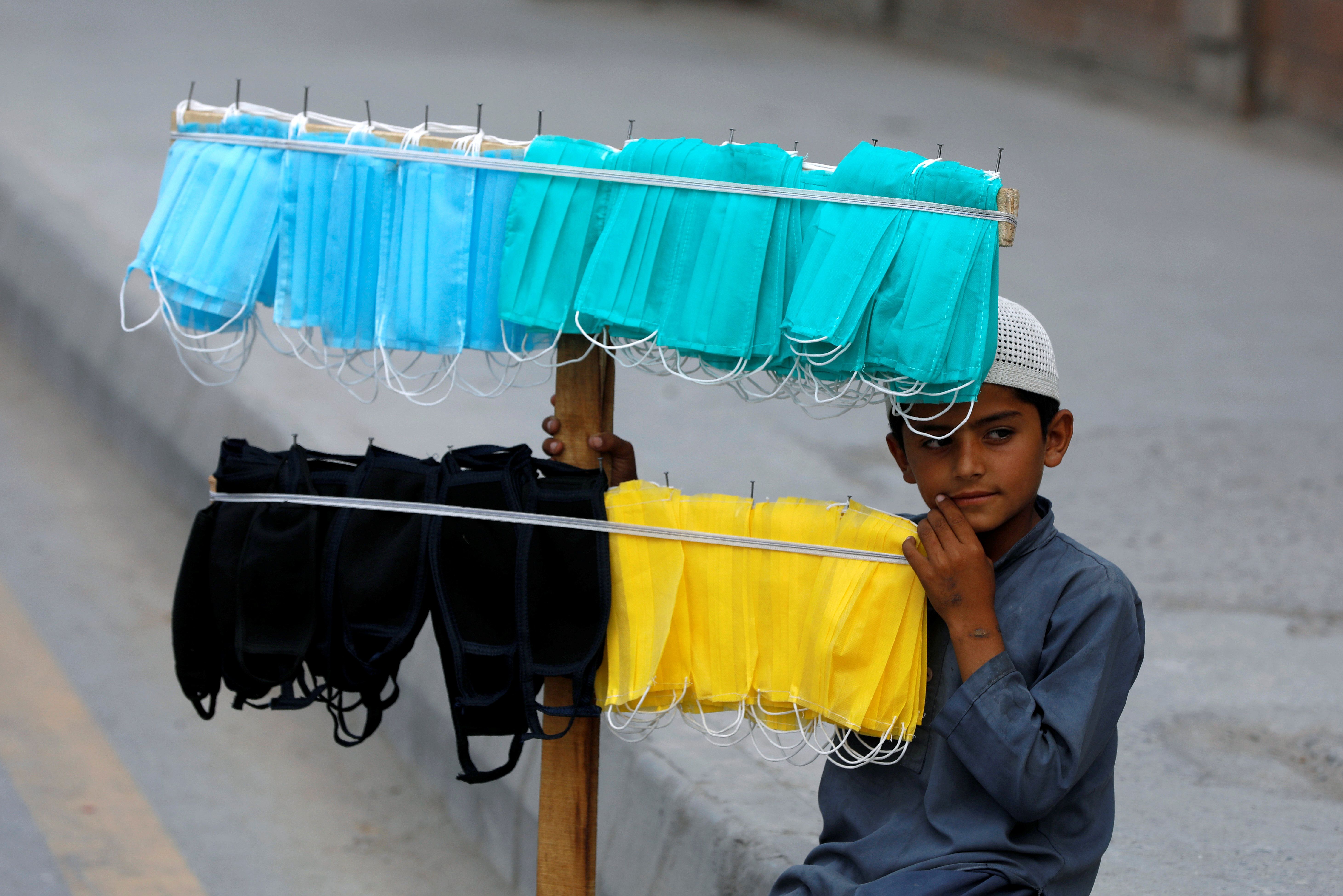Science & Tech
June 10, 2020
Pakistan's coronavirus surge: The World Health Organization is urging Pakistan to reimpose strict lockdowns, citing a surge in recent coronavirus cases in the country. Earlier this spring, the Pakistani government mandated lockdowns in some parts of the country, but opted not to order the closure of mosques, bowing to pressure from religious groups in the majority-Muslim nation. Most lockdown measures were then lifted ahead of the Muslim holiday of Eid al-Fitr two weeks ago. Since then, the daily increase in confirmed cases has shot up from an average of about 1,700 before Eid to a record of nearly 5,400 on Tuesday, according to Al-Jazeera. The WHO says Pakistan has met none of the criteria for easing restrictions and needs to do much more testing. But Prime Minister Khan is in a tough spot. Lockdowns are not only hard to enforce, but in a country where up to three quarters of all non-farm jobs are in the informal sector and 24 percent of the population lives in poverty, shuttering businesses can have a catastrophic effect on society. To date, Pakistan has recorded more than 113,000 cases and about 2,200 deaths.
High-altitude tensions in the Himalayas: Nepal's government has just issued a new official map of the country which its neighbors in India are not going to like. In dispute is an area of about 140 square miles in the Himalayas that includes a mountain pass that India's military says is vitally important to the country's security. For the past sixty years, India has de facto controlled it, and the people who live there are Indian citizens. But last November, India published a new map that formally included the territory as a part of India, provoking fury in Nepal. In part the dispute goes back to an unclear map in a 200-year old treaty. But tensions over the area are intensifying now as Nepal has deepened economic ties with China, which Indian officials say has an interest in stoking tensions up in the mountains. Beijing is withholding comment, but the issue is drawing international attention in light of a recent uptick in high altitude border tensions between India and China directly. Keep an eye on this one: the air is thin up there, but the geopolitical drama is thick.
Can the UK do 5G without China? British telecoms giant Vodaphone has warned that if the UK government bans the use of equipment made by China's Huawei, Britain could fall behind in the global race to develop 5G technologies. The warning highlights a challenge that a number of countries around the world are facing. Blazing fast new 5G networks will massively boost technological innovation and data capabilities, underpinning a whole new generation of technologies like advanced manufacturing, the internet-of-things, and even self-driving cars. But to get there, most countries will need to rely heavily on components made by Huawei, the world's leading supplier. That's a problem for countries — especially the US and Europe — that have become more suspicious of Chinese technology. The US has already banned certain Huawei-made 5G components over fears that Beijing could use them to snoop on Americans or cripple critical infrastructure in a time of crisis. Vodafone says it can build 5G without Huawei components if it absolutely has to, but it's a lot more expensive and time-consuming to switch suppliers now. The warning comes as the UK explores ways to decrease its reliance on Chinese exports and technologies more broadly.
More For You
World Central Kitchen staff hand out free soup in a neighbourhood that experiences electricity and heating outages following recent Russian attacks on Ukraine’s civilian infrastructure during subzero temperatures in Kyiv, Ukraine February 3, 2026.
REUTERS/Thomas Peter
1,170: The number of high-rise buildings in Kyiv that were left without heating following a barrage of Russian attacks last night on Ukraine’s capital and its energy facilities, per Kyiv Mayor Vitali Klitschko.
Most Popular
What We’re Watching: US critical minerals summit, Rafah crossing reopens, Border violence in Pakistan
Feb 02, 2026
U.S. President Donald Trump and Japanese Prime Minister Sanae Takaichi hold up signed documents regarding securing the supply of critical minerals and rare earths, at a bilateral meeting at Akasaka Palace in Tokyo, Japan, October 28, 2025.
REUTERS/Evelyn Hockstein
Representatives from the European Union, United Kingdom, Japan, and others will meet in Washington this week to discuss a strategic alliance on critical minerals.
Hard numbers: Large protests in Czechia, UAE-linked firm has large stake in the president’s company, & More
Feb 02, 2026
People take part in a rally in support of Czech President Petr Pavel, organised by Million Moments for Democracy group in reaction to dispute between President Pavel and Czech Foreign Minister and Motorists chair Petr Macinka, in Prague, Czech Republic, February 1, 2026.
REUTERS/Eva Korinkova
80,000: The number of people estimated to be in the streets of Czechia on Sunday to show their support for President Petr Pavel after he blocked the nomination of an environmental minister who performed the Nazi salute and posted Nazi memorabilia.
US President Donald Trump and musician Nicki Minaj hold hands onstage at the US Treasury Department's Trump Accounts Summit, in Washington, D.C., USA, on January 28, 2026.
REUTERS/Kevin Lamarque
The US has started handing $1,000 to the bank accounts of newborn babies. But can policies like this one help boost sagging birthrates in advanced democracies?
© 2025 GZERO Media. All Rights Reserved | A Eurasia Group media company.
